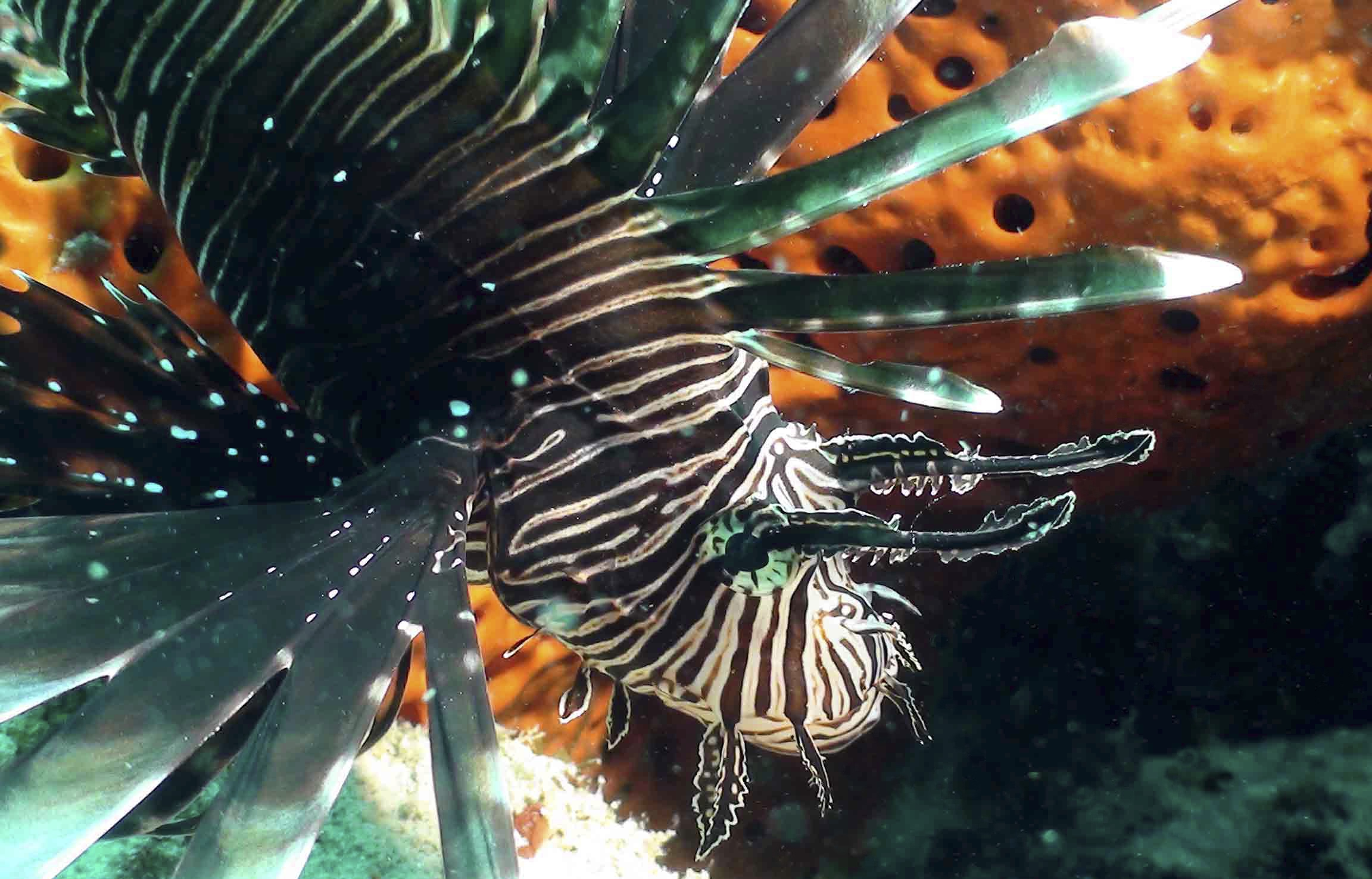
The Aquatic Nuisance Species Task Force wants comment from the public by Jan. 26.
Since 2008, thousands of lionfish have been killed across the territory.
The Prevention and Management Plan sums up the problem. It indicates that during the course of their nearly three-decade invasion, lionfish have demonstrated how challenging it can be to control a marine invasive species once it becomes established. While numerous freshwater systems in the United States have experienced invasive fishes, never before has there been a large-scale finfish invasion recorded in the waters of the Southeast Atlantic Caribbean and Gulf of Mexico.
As a result, few coastal governing bodies have rules or regulations that address recreational or commercial harvest of non-native marine fishes. According to the plan, many existing regulations governing all marine fish may provide obstacles to the removal of invasive species. In the United States, lionfish are found in federal, state, and county marine waters as well as in estuary systems. Additional restrictions on removals can also be applied relative to endangered, threatened, or otherwise protected species.
States and U.S. territories in the invaded range cite a lack of dedicated funding and personnel as the primary hurdle in their management of lionfish invasion, the plan indicates.
No one could be reached locally for on Christmas Eve, but the federal management plan indicates the territory is already on the job. In 2009, the Lionfish Response Plan for the Virgin Islands was developed.
Since the development of this response plan in 2009, the lionfish invasion in the territorial waters went from occasional sightings of individual fish to numerous sightings of multiple fish from a variety of habitats and depth ranges. This rapid change in the abundance and distribution of the invasion prompted the Planning and Natural Resources Department and the Nature Conservancy to update and revise the response plan in February 2014 with specific strategies for education and outreach, removal, research and monitoring, marketing and communications.
The plan outlines approaches for decision makers, marine managers, researchers, fishers, divers, and educators to implement in an effort to control the worst effects of the invasion. It also outlines some of the current research and management actions taking place in the Virgin Islands.
The federal management plan has multiple goals that begin with preventing the spread of invasive lionfish. The top priority is 100 percent prevention of new populations in high priority areas.
Second, the plan seeks to coordinate early detection and rapid response when lionfish are sighted.
The third goal is control and management of invasive lionfish, including developing tools for localized control and management and reducing lionfish densities in high priority sites. It also includes identifying and addressing current regulatory hurdles and tools and building partnerships between federal and state agencies.
The final goal is to assess the impact of the lionfish invasion.
The federal plan can be seen here: .
Comments on the federal plan can be sent by email to Susan.Pasko@noaa.gov or by regular mail to Susan Pasko, National Oceanic and Atmospheric Administration, 1315 East West Highway, SSMC 3, Room 15719, Silver Spring, MD 20910.





